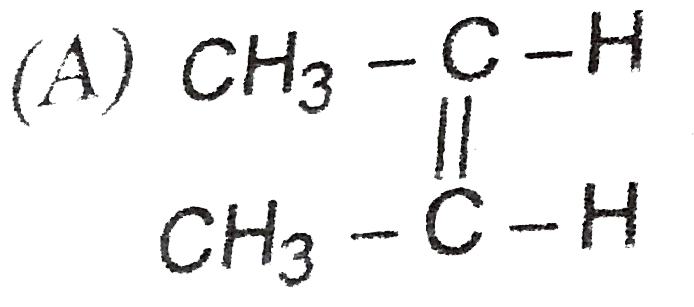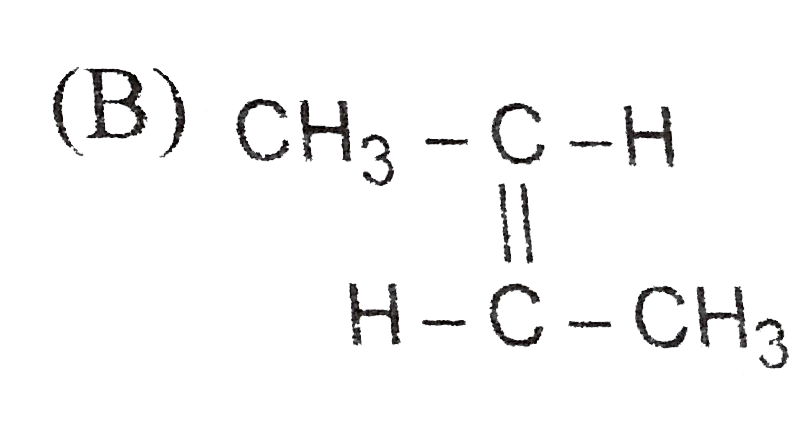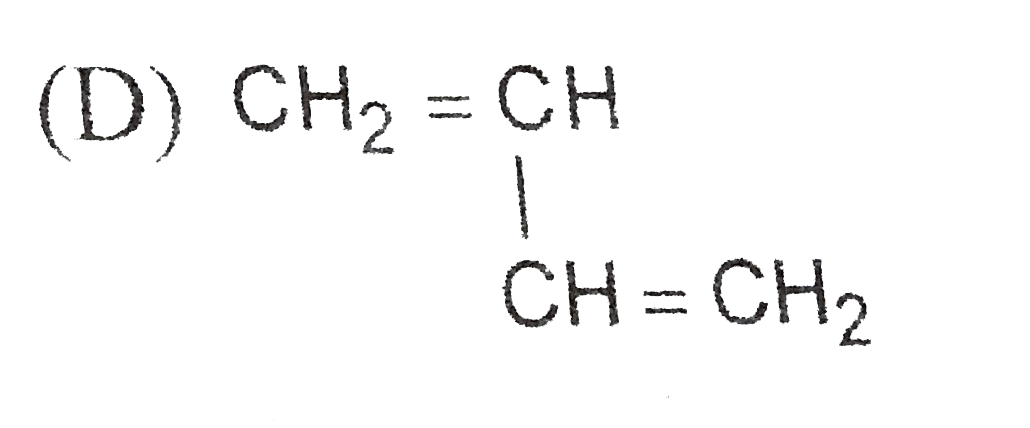(i) Is it possible to prepare methane by kolbe's electrolyte method.
(ii) Explain how 2-butyne reacts with (a) Lindlar's catalyst (b) Sodium in liquid ammonia.
(a) (i) Kolbe.s electrolytic method is suitable for the preparation of symmetrical alkanes, that is alkanes containing even number of carbon atoms. Methane has only one carbon, hence it cannot be prepared by Kolbe.s electrolytic method.
(ii) (a) 2-butyne reacts with Lindlar.s catalyst: 2-butyne can be reduced to cis-2 butene using CaCO3 supported in Pd-metal partially deactivated with sulphur.
This reaction is stereo specific giving only the cis-2butene.

(b) 2-butyne reacts with sodium in liquid ammonia: 2-butyne can also be reduced to trans-2-butene using sodium in liquid ammonia. This reaction is stereospecific giving only the trans-2-butene.

Topper's Solved these Questions
Similar Questions
Knowledge Check
Reduction of 2 - butyne with sodium in liquid ammonia gives predominantly
Acis - 2- buteneBn - butaneCtrans - 2- buteneDNone of theseWhat happens when 2-butyne reacts with H2 in presence of Nickle bride or lindlar's catalyst (Pd/CaCO3−PbO)
A B
B CCH3−CH2−CH2−CH3D
CCH3−CH2−CH2−CH3D
Which one of the following are prepared by electrolytic method ?
I. Mg II. S III. Sulfur IV. F2AI and IIBII and IIICIII and IVDI and IV
What happens when 2-butyne reacts with H2 in presence of Nickle bride or lindlar's catalyst (Pd/CaCO3−PbO)
View SolutionAn organic compound (A) C5H9Br which readily decolourises bromine water and KMnO4 solution gives (B), C5H11Br on treatment with Sn/HCI. The reaction of (A) with NaNH2 produces (C) with evolution of ammonia (C) neither reacts with sodium nor forms any metal acetylide but reacts with Lindlar catalyst to give (D) and on reaction with Na/liq.NH3 produces (E) .Both the compounds (D) and (E) are isomeric. Give structures of (A) to (E) with proper reasoning.
View SolutionWhich one of the following are prepared by electrolytic method ?
I. Mg II. S III. Sulfur IV. F2
View SolutionWhich one of the following are prepared by electrolytic method ?
I. Mg II. S III. Sulfur IV. F2
View SolutionAn prgamoc cp,[pimd C5H9Br(A) which readily decolourises bromine water and cold alkaline KMnO4 solution gives C5H11Br(B) on catalytic hydrogenation. The reaction of A with alcoholic KOH first and then with NaNH2 produces C with evolution of NH3. C reacts with Lindlar's catalyst to give D and on reaction with Na in liquid NH3 produces E. D and E are isomers. The compound A is
View Solution
